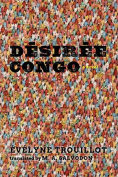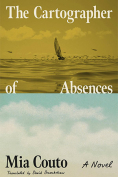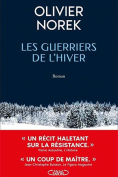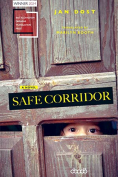Things That Disappear by Jenny Erpenbeck
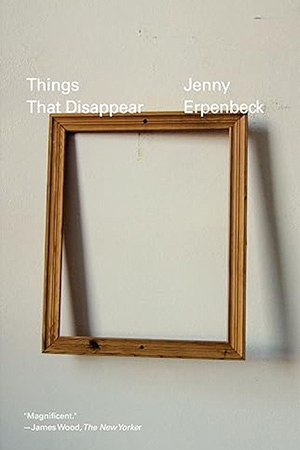
New York. New Directions. 2025. 96 pages.
It’s a strange feeling, encountering an item from yesteryear. We have all had the experience of happening upon an abandoned telephone booth, finding a floppy disk while unpacking a box, or seeing an old image of a once-common job like milkman. For a moment, you are aware of the now-defunct utility of such an item or job, and with it, the disappearance of an entire way of doing things. You might feel nostalgic. You might laugh at how quaint it seems now. You might have to explain the concept to a child whose world does not include such things. In her newly translated collection of anecdotes and musings, Things That Disappear, Jenny Erpenbeck explores this and other feelings attendant to the sensation of realizing that something that was once self-evident no longer exists.
This slim volume of short writings (thirty-one pieces over fewer than one hundred pages) packs a punch, as Erpenbeck explores different dimensions of the phenomenon of disappearance. She not only covers an impressive array of types of things that can disappear, from political regimes to relationships to jobs to everyday items, but she also considers the forms that disappearance can take, including dissolution, ingestion, silence, death, and simply leaving. Her tone ranges from wistful to humorous to mournful, mirroring the affective experience that disappearance can evoke, including nostalgia (for the spaces of her childhood), frustration (when she can’t find her cheese), grief (when remembering a lost loved one), and relief (as with the fall of the Berlin Wall). Even the disappearance of negative concepts like empty space can evoke feelings of being closed in, of a world overfilled and overstimulated. The brevity of Erpenbeck’s writings, each piece ranging from half a page to three pages, mimics the transitory nature of our relationships to things, people, places, and eras: as a reader, you delve into one of these exquisite essays, and before you know it, it is over.
Erpenbeck is one of Germany’s most celebrated authors today, recipient of the International Booker Prize and the Order of Merit of the Federal Republic of Germany, among many other accolades, including being named the 2018 Puterbaugh Fellow (see WLT, July 2018, 48–63). She grew up in East Germany and was in her early twenties when the Berlin Wall fell and communist society along with it. She has seen not only a political regime but also an entire way of life disappear. Having lived through her own society becoming defunct as capitalism set in, including both its negative and positive aspects, she is acutely attuned to the concept of disappearance. The brilliance of these essays lies in how she relates such large-scale social transformations specific to a certain place, time, and population to the small, everyday moments of disappearance that we all experience. Her essays are eminently relatable.
The first piece in the collection is devoted to the now-demolished Palace of the Republic, which served both as the seat of the East German parliament and, with its bowling alley, cinema, restaurants, concert hall, and many more amenities, provided a social hub for the people. Erpenbeck speaks of first dates and concerts there; it was, indeed, a building that held special memories for her and others. It is perhaps not surprising then that the building’s demolition in the early 2000s was felt by many former East Germans as an erasure of their identity, enacted within the architectural landscape of central Berlin. Erpenbeck describes the disappearance of this special building but also her act of defiance, as she let a spoon from its restaurant “disappear” into her pocket as a keepsake.
Erpenbeck addresses other aspects of East Germany that she misses because they have disappeared in the more individualistic and competitive capitalist society: the care and courtesy people had for one another under communism and the resourcefulness of people who could not afford to waste material items. What has not disappeared, as becomes evident over several of the essays, are the impacts of the murderous Nazi regime and World War II on German society, particularly on the residents of Berlin. In at least ten places over the course of the slim volume’s pages, Germany’s difficult past comes to the surface: in the gaps between buildings due to bombings; in the wise advice the narrator receives to always have a coal-burning oven in the home in case war ever breaks out again; in a conversation in which the narrator learns that an acquaintance’s brother fell in the war. One essay is devoted to the site of the Warsaw ghetto, as the narrator describes the few traces left of the Nazis’ cruelty there and the victims’ resistance; the area has since been developed with high-rise buildings, and the traces that remain are inscrutable to most.
Erpenbeck masterfully conveys the sense of before and after that comes with living in the aftermath of large-scale historical events, moving deftly between the everyday and the ways in which history impacts it. We have all lost socks in the dryer, had to make things “disappear” when packing to leave a hotel room, felt the odd sensation of coming across a long-forgotten object, or lost a loved one. We can conceive then, in a small way, of the larger erasures that toward which Erpenbeck gestures. The brilliance of Erpenbeck’s writing lies in her ability to say a lot with few words. She sets a tone with apparent effortlessness, which is certainly not effortless. Kurt Beals’s translation, his second of Erpenbeck’s works, meets that challenge. He captures the nuance in her emotion-building and carries her voice, with care, across languages.
Everything disappears eventually, which is a consistent theme in Erpenbeck’s works, not just this collection. Things That Disappear makes evident that we experience this phenomenon to larger and smaller degrees each day. These essays linger in my mind, thankfully not disappearing too quickly.
 Necia Chronister is professor and coordinator of the German language program at Kansas State University. Her essay “The Enduring Impermanence of Jenny Erpenbeck” appeared in the July 2018 issue of WLT. Recently, she co-edited Juli Zeh: A Critical Companion (2024).
Necia Chronister is professor and coordinator of the German language program at Kansas State University. Her essay “The Enduring Impermanence of Jenny Erpenbeck” appeared in the July 2018 issue of WLT. Recently, she co-edited Juli Zeh: A Critical Companion (2024).




